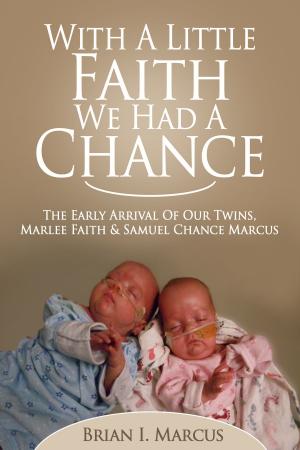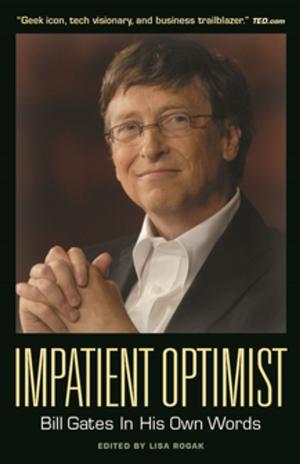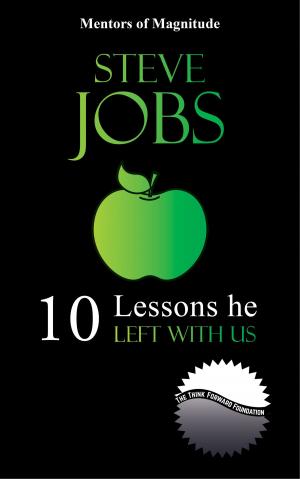A Cautionary Tale: The DWI Trial Of Stephen Mole
Nonfiction, Social & Cultural Studies, True Crime, Health & Well Being, Self Help, Self Improvement, Motivational| Author: | Art Collins | ISBN: | 9781311624710 |
| Publisher: | Art Collins | Publication: | November 24, 2013 |
| Imprint: | Smashwords Edition | Language: | English |
| Author: | Art Collins |
| ISBN: | 9781311624710 |
| Publisher: | Art Collins |
| Publication: | November 24, 2013 |
| Imprint: | Smashwords Edition |
| Language: | English |
Steve Mole was pronounced guilty of killing one person and seriously injuring two others while drunk driving. He was a fifty-ish computer programmer with sole custody of two teenagers—by all accounts a loving father. He was an avid churchgoer, conscientious worker; an everyday non-remarkable resident of Texas.
Despite having no prior convictions, the jury gave him a total of 30 years on the three separate charges. The judge ruled they be served consecutively. There would be no parole possibility until the 15 year halfway point.
Certainly the suffering he had caused was profound and no punches are pulled in chronicling the accident and its aftermath. But was the sentence just? Is society really achieving its intended results with its ever escalating “get tough on crime” mentality? If our anti-crime deterrents are so effective, why does the U.S. continue to have the highest per capita prison population?
Who is being served by Steve sitting in jail on the taxpayer’s dime? Does his excessive incarceration make us safer? More righteous? Is it likely to convince anyone to call a cab? Personally, a 30 year “deterrent” isn’t much different to me than a 30 day one—I couldn’t endure what Steve is enduring for any length of time. When I’ve driven my car after imbibing, it’s because, rightly or wrongly, I feel I’ll be paying close attention, I am ok, I am in control. Piling on years isn’t going to alter that.
One of the earlier considerations for a book title came from Steve’s observation. “While they were correct in their judgment of my actions on the evening and preceding day of March 25, 2006, they sat in judgment of my heart and attitudes both that day and the months that followed.” Steve was widely considered to be a cold monster. That resulted from some of the many comedy-of-error-ish bad judgment calls and missed opportunities that peppered the proceedings.
According to his daughter, Steve’s trial was little more than “an emotional beat-down.” For five days, Steve heard enough deplorable assessments of his character that he had a near out-of-body experience—barely seeing himself as the person sitting in the defendant’s chair. Even some of his arguably laudable aspects—he became a born-again Christian years before the accident—were questioned. The jury foreman later admitted believing Steve’s faith was a mere post-accident “come-to-Jesus” moment. It was one of several misconceptions he revealed in his interview—erroneous impressions that wouldn’t have changed the verdict, but probably would have significantly impacted the sentence.
A Cautionary Tale takes us through the various settings of Steve’s dark odyssey, from the crash site and arrest through the trial and his current prison life. Given his circumstances, his attitude is startlingly optimistic and inspirational. He regards his new environment as a stage from which to live and demonstrate his faith.
His chronicle is part drama, part societal critique, but mainly a story of redemption. For many of us, it could also serve as a sobering “there-but-for-the-grace-of-God” warning. You’re not a criminal and neither are those close to you. Not yet. But it’s getting increasingly easier to become one and a lot harder to become an “ex” one.
Steve Mole was pronounced guilty of killing one person and seriously injuring two others while drunk driving. He was a fifty-ish computer programmer with sole custody of two teenagers—by all accounts a loving father. He was an avid churchgoer, conscientious worker; an everyday non-remarkable resident of Texas.
Despite having no prior convictions, the jury gave him a total of 30 years on the three separate charges. The judge ruled they be served consecutively. There would be no parole possibility until the 15 year halfway point.
Certainly the suffering he had caused was profound and no punches are pulled in chronicling the accident and its aftermath. But was the sentence just? Is society really achieving its intended results with its ever escalating “get tough on crime” mentality? If our anti-crime deterrents are so effective, why does the U.S. continue to have the highest per capita prison population?
Who is being served by Steve sitting in jail on the taxpayer’s dime? Does his excessive incarceration make us safer? More righteous? Is it likely to convince anyone to call a cab? Personally, a 30 year “deterrent” isn’t much different to me than a 30 day one—I couldn’t endure what Steve is enduring for any length of time. When I’ve driven my car after imbibing, it’s because, rightly or wrongly, I feel I’ll be paying close attention, I am ok, I am in control. Piling on years isn’t going to alter that.
One of the earlier considerations for a book title came from Steve’s observation. “While they were correct in their judgment of my actions on the evening and preceding day of March 25, 2006, they sat in judgment of my heart and attitudes both that day and the months that followed.” Steve was widely considered to be a cold monster. That resulted from some of the many comedy-of-error-ish bad judgment calls and missed opportunities that peppered the proceedings.
According to his daughter, Steve’s trial was little more than “an emotional beat-down.” For five days, Steve heard enough deplorable assessments of his character that he had a near out-of-body experience—barely seeing himself as the person sitting in the defendant’s chair. Even some of his arguably laudable aspects—he became a born-again Christian years before the accident—were questioned. The jury foreman later admitted believing Steve’s faith was a mere post-accident “come-to-Jesus” moment. It was one of several misconceptions he revealed in his interview—erroneous impressions that wouldn’t have changed the verdict, but probably would have significantly impacted the sentence.
A Cautionary Tale takes us through the various settings of Steve’s dark odyssey, from the crash site and arrest through the trial and his current prison life. Given his circumstances, his attitude is startlingly optimistic and inspirational. He regards his new environment as a stage from which to live and demonstrate his faith.
His chronicle is part drama, part societal critique, but mainly a story of redemption. For many of us, it could also serve as a sobering “there-but-for-the-grace-of-God” warning. You’re not a criminal and neither are those close to you. Not yet. But it’s getting increasingly easier to become one and a lot harder to become an “ex” one.















